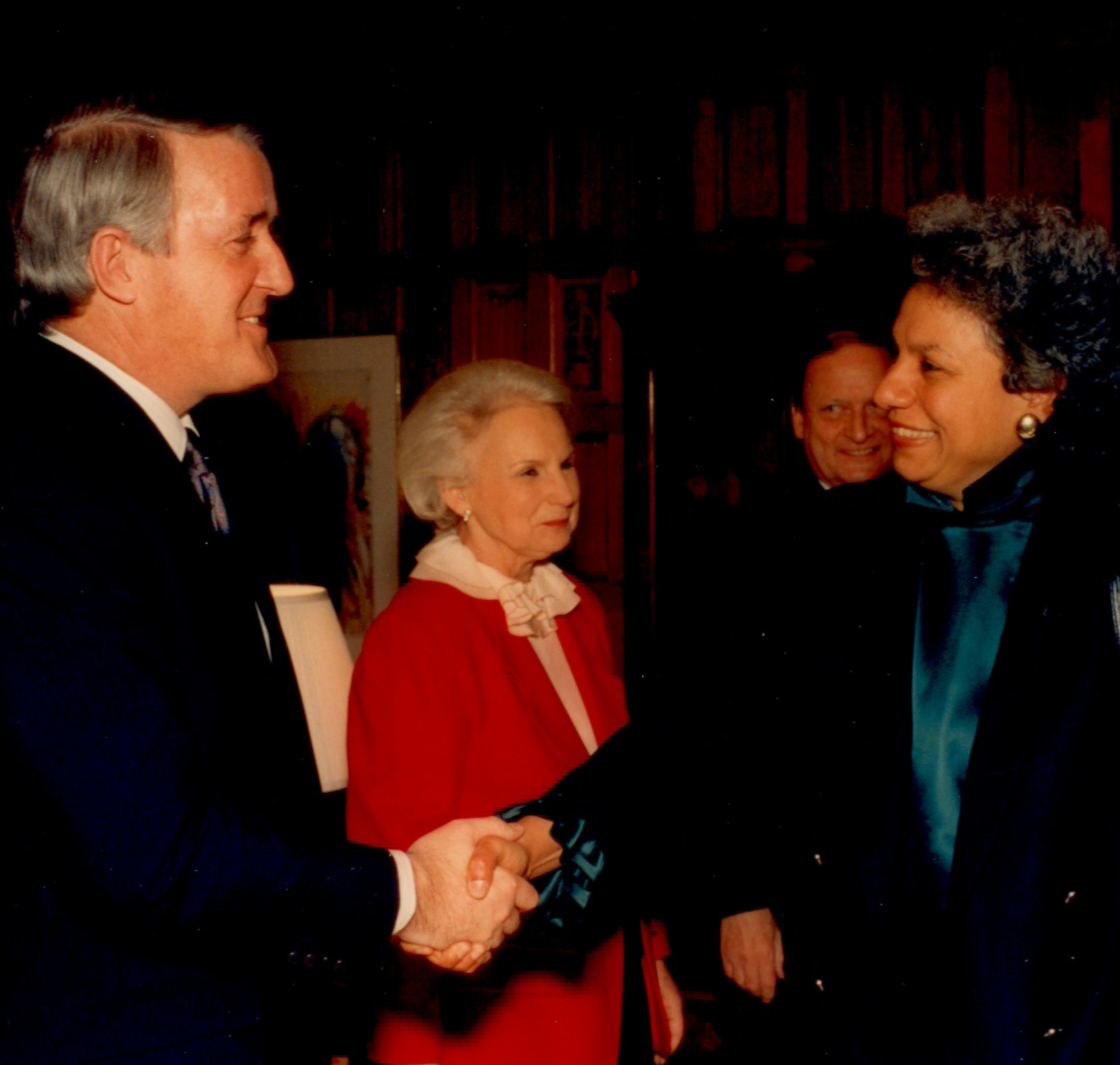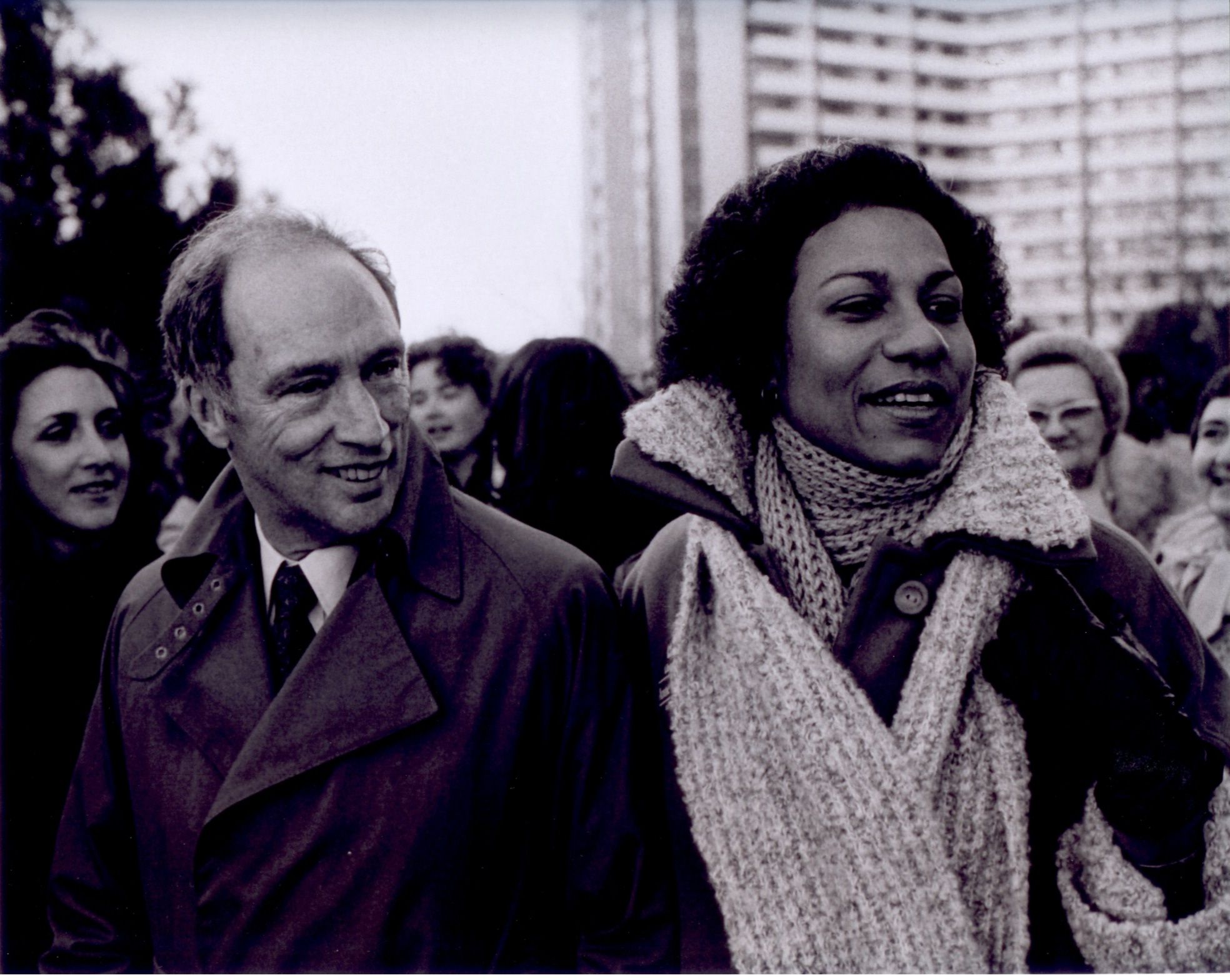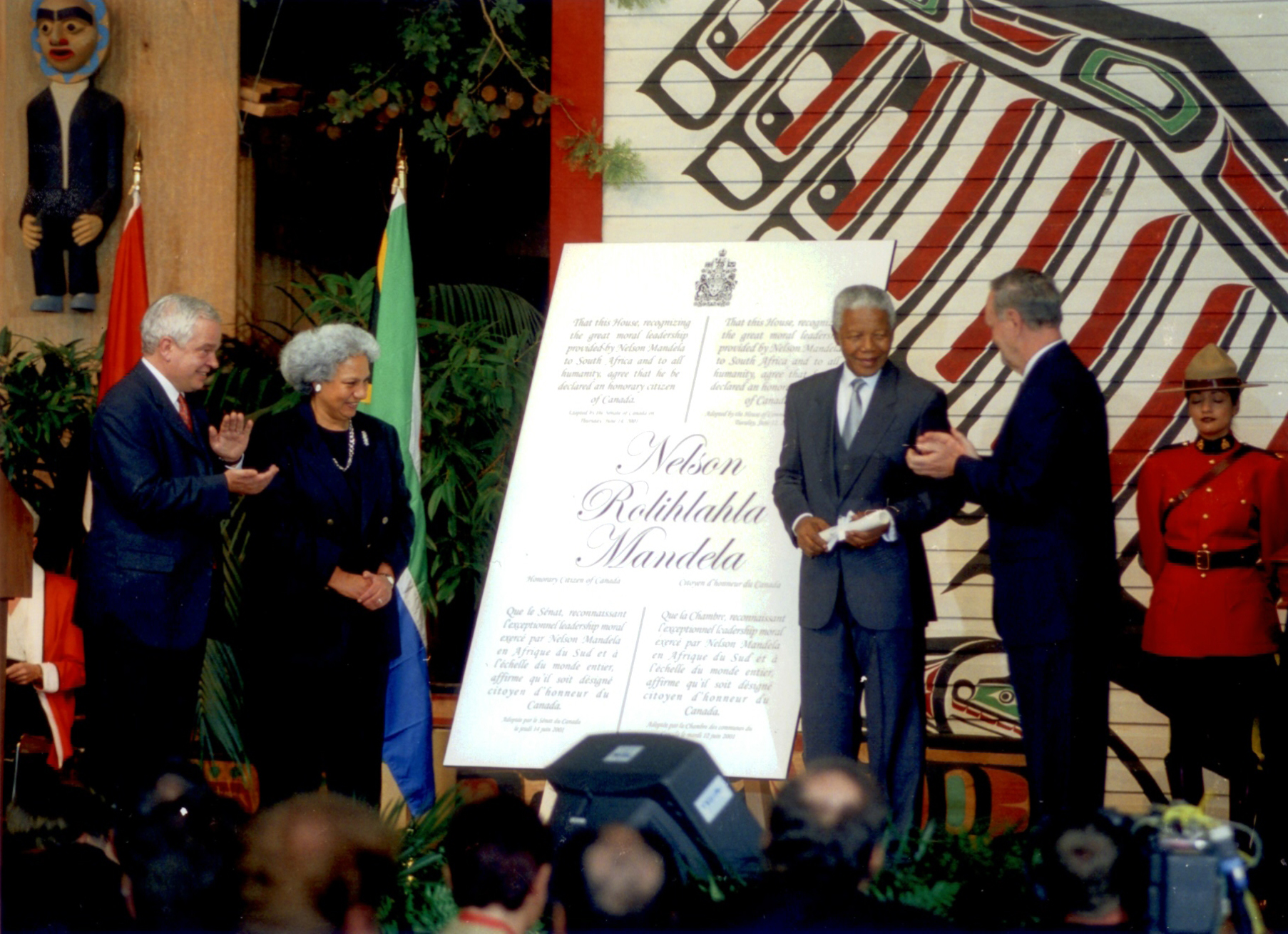Black History Month: Meet Senator Anne C. Cools

Black History Month recognizes the important contributions black Canadians have made to Canadian Society.
Senator Anne Clare Cools is an Ontario Senator representing Toronto-Centre-York. She was summoned to the Senate in January 1984 by His Excellency Governor General Edward Schreyer on the recommendation of the Rt. Hon. Pierre Trudeau. She is the first black person appointed to the Senate of Canada and the first black female senator in North America.

Name a black Canadian (historical figure or present day person) who exemplifies courage and strength to you? Why?
I was born and raised in Barbados, in the British West Indies. Now keep in mind, this is a part of the world that had slavery for centuries — so quite naturally my heroes growing up were the British abolitionists who put an end to the slave trade and then slavery itself. We weren't interested in baseball players or movie stars.
For instance, William Wilberforce was legendary in his enduring perseverance to combat this human evil.
What are the best lessons you learned growing up? What words of wisdom can you share with young Canadians?
Read and study. Knowledge is indispensable to every successful endeavour. I read a lot.
Name an artist/author/musician/performer whose work inspires you. Why? Can you suggest a book/song/dance/film/painting that more Canadians should know about?
Joseph Pope assembled copious notes of the delegates’ discussions at the 1864 Quebec Conference on Confederation. These include the 72 resolutions. What impressed me most about that meeting was that in the exchanges we encounter people who were clearly motivated by a strong desire to reach agreement on their federal union.
They understood that with the United States in civil war, it would not be long until our southern neighbours would once again wish to make war with Britain and annex Canada. They therefore sought and found a constitutional response to their real social problems, and in doing so, left their mark on Canadian institutions of governance.
The history of the New World — of the United States, of the Caribbean, of Canada — is at the heart of Black History. I don't differentiate.
As a black Canadian, what does it mean to you to be a Senator? What kind of impact would you like to have in Canada's Parliament this session? Name one key policy issue that matters to you and explain why?
I do not view my senatorship through the colour of my skin. I was chosen because of my work and activity for Canadians. For example, I challenged a rigid and unfair feminism in the 1990s.
One project I would like to focus on as my time in the Senate nears a close is the creation of Canada, its success as a nation and its evolution as a people. Not enough work has gone into studying and truly understanding the remarkable and unique story of our country.




Related articles
Tags
Committee news
Black History Month: Meet Senator Anne C. Cools

Black History Month recognizes the important contributions black Canadians have made to Canadian Society.
Senator Anne Clare Cools is an Ontario Senator representing Toronto-Centre-York. She was summoned to the Senate in January 1984 by His Excellency Governor General Edward Schreyer on the recommendation of the Rt. Hon. Pierre Trudeau. She is the first black person appointed to the Senate of Canada and the first black female senator in North America.

Name a black Canadian (historical figure or present day person) who exemplifies courage and strength to you? Why?
I was born and raised in Barbados, in the British West Indies. Now keep in mind, this is a part of the world that had slavery for centuries — so quite naturally my heroes growing up were the British abolitionists who put an end to the slave trade and then slavery itself. We weren't interested in baseball players or movie stars.
For instance, William Wilberforce was legendary in his enduring perseverance to combat this human evil.
What are the best lessons you learned growing up? What words of wisdom can you share with young Canadians?
Read and study. Knowledge is indispensable to every successful endeavour. I read a lot.
Name an artist/author/musician/performer whose work inspires you. Why? Can you suggest a book/song/dance/film/painting that more Canadians should know about?
Joseph Pope assembled copious notes of the delegates’ discussions at the 1864 Quebec Conference on Confederation. These include the 72 resolutions. What impressed me most about that meeting was that in the exchanges we encounter people who were clearly motivated by a strong desire to reach agreement on their federal union.
They understood that with the United States in civil war, it would not be long until our southern neighbours would once again wish to make war with Britain and annex Canada. They therefore sought and found a constitutional response to their real social problems, and in doing so, left their mark on Canadian institutions of governance.
The history of the New World — of the United States, of the Caribbean, of Canada — is at the heart of Black History. I don't differentiate.
As a black Canadian, what does it mean to you to be a Senator? What kind of impact would you like to have in Canada's Parliament this session? Name one key policy issue that matters to you and explain why?
I do not view my senatorship through the colour of my skin. I was chosen because of my work and activity for Canadians. For example, I challenged a rigid and unfair feminism in the 1990s.
One project I would like to focus on as my time in the Senate nears a close is the creation of Canada, its success as a nation and its evolution as a people. Not enough work has gone into studying and truly understanding the remarkable and unique story of our country.






